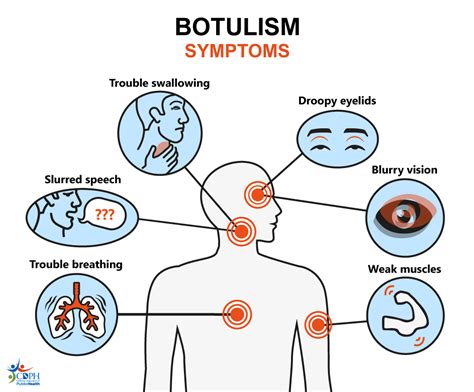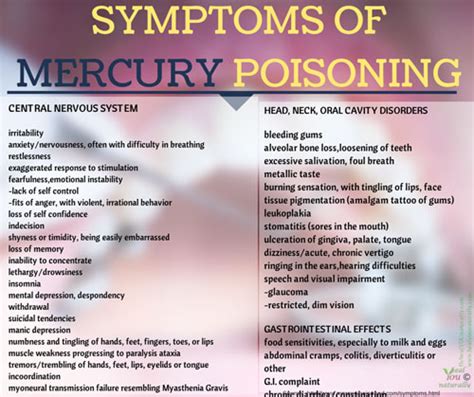
Food Poisoning Symptoms
Food Poisoning Symptoms
Food poisoning symptoms is a common problem that affects millions of people every year. It occurs when we consume food or water contaminated with bacteria, viruses, or other harmful substances. The symptoms of food poisoning can range from mild to severe and may appear within hours or days after eating contaminated food.
The most common symptoms of food poisoning include nausea, vomiting, diarrhea, and abdominal pain. Other symptoms may include fever, headache, muscle aches, and dehydration. In severe cases, food poisoning can lead to kidney failure, seizures, and even death.
It’s important to recognize the symptoms of food poisoning early on because prompt treatment can help prevent complications. If you experience any of these symptoms, it’s best to avoid solid foods for a while and consume only clear fluids like water, broth, and electrolyte solutions. You should also rest and take steps to prevent dehydration by drinking plenty of fluids.
If your symptoms persist or worsen, it’s essential to seek medical attention promptly. Your doctor may recommend antibiotics, anti-nausea medication, or other treatments to help alleviate your symptoms and prevent complications.

To prevent food poisoning, it’s crucial to practice good food hygiene. This includes washing your hands thoroughly before handling food, cooking food thoroughly, storing food at the correct temperature, and avoiding cross-contamination between raw and cooked foods.
In conclusion, food poisoning is a common problem that can have serious consequences if left untreated. By recognizing the symptoms early on and taking steps to prevent it, we can reduce our risk of developing this unpleasant condition. If you experience any symptoms of food poisoning, seek medical attention promptly to ensure a swift recovery. Remember, prevention is always better than cure, so practice good food hygiene and stay safe and healthy!
Diarrhea
Diarrhea is a common gastrointestinal disorder that affects millions of people worldwide. It is characterized by loose, watery stools that may occur several times a day. While diarrhea can be caused by a variety of factors, including infections, medications, and underlying health conditions, it is typically a self-limiting condition that resolves on its own within a few days.
One of the most common causes of diarrhea is an infection with a virus or bacteria. These pathogens can be transmitted through contaminated food or water, or from person to person through close contact. Common symptoms of infectious diarrhea include abdominal pain, cramping, nausea, and fever, in addition to the hallmark loose stools.
Another cause of diarrhea is the use of certain medications, including antibiotics and some cancer treatments. These drugs can disrupt the balance of bacteria in the gut, leading to diarrhea and other digestive symptoms. In some cases, switching to a different medication or adjusting the dosage can help alleviate these side effects.
In addition to these common causes, diarrhea can also be a symptom of an underlying health condition, such as inflammatory bowel disease or celiac disease. If you experience chronic diarrhea or have other concerning symptoms, it is important to talk to your healthcare provider to determine the underlying cause and develop an appropriate treatment plan.
While diarrhea can be uncomfortable and inconvenient, there are several steps you can take to manage the symptoms and speed up recovery. These include staying hydrated with clear fluids like water and electrolyte solutions, avoiding dairy and spicy foods, and getting plenty of rest. In some cases, over-the-counter medications like loperamide can help slow down the digestive system and reduce the frequency of bowel movements.
In conclusion, diarrhea is a common condition that can be caused by a variety of factors. While it can be uncomfortable, most cases resolve on their own within a few days. If you experience persistent or severe symptoms, it is important to seek medical attention to identify any underlying health conditions and determine the best course of treatment.
Fever and Chills
Fever and chills are symptoms that often accompany many illnesses, ranging from the common cold to more severe infections. These symptoms can be caused by a variety of factors, including viral or bacterial infections, autoimmune disorders, and even certain medications.
Fever, also known as pyrexia, is a rise in body temperature above the normal range of 98.6°F (37°C). The body’s natural response to infection or inflammation is to increase its temperature, which helps fight off harmful bacteria and viruses. Fever can be caused by various reasons such as flu, pneumonia, urinary tract infections, and meningitis. It is important to monitor your fever and seek medical attention if it persists for more than a few days or if it rises above 103°F (39.4°C).
Chills, on the other hand, are involuntary muscle contractions that cause shivering and an overall feeling of coldness. Chills usually occur along with fever as the body tries to raise its temperature. They can also be a side effect of some medications or a symptom of anxiety or stress. Chills can be managed by wearing warm clothing, avoiding cold environments, and staying hydrated.
It’s important to note that fever and chills are not diseases themselves but rather a symptom of an underlying condition. In order to effectively treat fever and chills, identifying the underlying cause is crucial. Treatment may include taking over-the-counter fever reducers such as acetaminophen or ibuprofen, drinking plenty of fluids, and resting.
In addition to these treatments, there are several home remedies that can help alleviate fever and chills. These include taking a lukewarm bath, using a cool compress, and staying hydrated with water and other clear fluids.
In conclusion, fever and chills are common symptoms that can be caused by a variety of underlying conditions. While they can be uncomfortable, they are generally not serious and can be managed with proper treatment. If you experience persistent or severe fever and chills, it’s important to seek medical attention promptly.
Dehydration
Have you ever experienced that parched feeling in your mouth? Do you often feel fatigued or dizzy? These could be signs of dehydration. Dehydration occurs when the body loses more fluids than it takes in. It can happen to anyone, but certain factors make some people more susceptible than others.
Causes of Dehydration
The most common cause of dehydration is not drinking enough water. Other factors that increase the risk of dehydration include excessive sweating due to high temperatures, intense physical activity, or fever. Some medical conditions and medications can also contribute to dehydration. Diarrhea and vomiting are particularly concerning as they can lead to rapid fluid loss.
Symptoms of Dehydration
Early symptoms of dehydration include thirst, dry mouth, and dark yellow urine. As dehydration progresses, symptoms may become more severe, such as headache, fatigue, dizziness, confusion, and even fainting. In severe cases, dehydration can lead to life-threatening complications such as heat exhaustion or heatstroke.
Preventing Dehydration
The best way to prevent dehydration is to drink plenty of fluids regularly, especially during hot weather or when engaging in physical activity. Water is the best choice of fluid, but other options like sports drinks, coconut water, and fruit juices can also be beneficial. It is crucial to stay hydrated when experiencing diarrhea or vomiting by sipping small amounts of fluid frequently.
In conclusion, dehydration is a common condition that can have severe consequences if left untreated. It is essential to recognize the early signs and take steps to prevent dehydration, such as staying hydrated and avoiding situations that increase the risk of fluid loss. If you suspect you are suffering from dehydration, seek medical attention immediately. Remember, prevention is always better than cure.
Headache and Dizziness
Headache and dizziness are common symptoms that can occur together or separately. They can be caused by a variety of factors and can affect people of all ages. In this article, we will explore the causes, symptoms, and treatment options for headache and dizziness.
Causes:

Headache and dizziness can be caused by a variety of factors such as:
1. Migraines – a common cause of headache and dizziness, especially in women.
2. Dehydration – not drinking enough water can cause headaches and dizziness.
3. Low blood sugar levels – skipping meals or not eating enough can lead to low blood sugar levels, causing headaches and dizziness.
4. Inner ear problems – vertigo, a type of dizziness, can be caused by inner ear problems.
5. Medication side effects – some medications can cause headaches and dizziness as a side effect.
Symptoms:
The symptoms of headache and dizziness can vary depending on the underlying cause. However, some common symptoms include:
- 1. Throbbing or pulsating pain in the head.
- 2. Feeling lightheaded or faint.
- 3. Nausea or vomiting.
- 4. Sensitivity to light or sound.
- 5. Loss of balance or unsteadiness.
Treatment:
The treatment for headache and dizziness depends on the underlying cause. Some treatment options include:
1. Pain relievers – over-the-counter painkillers such as ibuprofen or acetaminophen can help relieve headaches.
2. Rehydration – drinking plenty of fluids can help treat dehydration-related headaches and dizziness.
3. Lifestyle changes – making lifestyle changes such as eating regular meals and getting enough sleep can help prevent headaches and dizziness.
4. Medications – prescription medications may be necessary if an underlying condition is causing the symptoms.

In conclusion, headache and dizziness can be caused by a variety of factors and can have a significant impact on an individual’s quality of life. It is essential to understand the underlying causes and seek appropriate treatment to manage these symptoms effectively. If you experience headaches and dizziness frequently, consult with your healthcare provider for proper diagnosis and treatment.
Weakness and Fatigue
Do you often feel tired, drained, or lacking energy? Do you often struggle to get through your day, even when you’ve had enough sleep? If so, you’re not alone. Weakness and fatigue are common complaints that affect many people, regardless of age or gender.
There are many potential causes of weakness and fatigue, ranging from lifestyle factors to underlying medical conditions. Some common causes include lack of sleep, poor diet, stress, anemia, thyroid disorders, diabetes, chronic fatigue syndrome, and depression.
If you’re experiencing weakness and fatigue, it’s important to identify the underlying cause so that you can take steps to address it. Here are some tips on how to do this:
1. Get enough sleep: Lack of sleep is a common cause of fatigue. Aim for at least 7-8 hours of sleep per night and try to establish a consistent sleep routine.
2. Eat a healthy diet: Eating a balanced diet with plenty of fruits, vegetables, whole grains, and lean protein can help improve energy levels.
3. Exercise regularly: Regular exercise can boost energy levels and reduce fatigue. Aim for at least 30 minutes of moderate-intensity exercise most days of the week.
4. Manage stress: Chronic stress can lead to fatigue. Try stress-reducing techniques such as meditation, yoga, or deep breathing exercises.
5. See a doctor: If your fatigue persists despite making changes to your lifestyle, it’s important to see a doctor to rule out any underlying medical conditions.
In conclusion, weakness and fatigue are common complaints that can have many different causes. By identifying the underlying cause and taking steps to address it, you can improve your energy levels and overall quality of life. If you’re struggling with weakness and fatigue, don’t hesitate to talk to your doctor or healthcare provider. They can provide guidance and support to help you feel better.
Loss of Appetite
Loss of appetite refers to the decreased desire to eat. It can be a temporary issue caused by factors such as stress or illness, or it can be a chronic condition that requires medical attention. In this article, we will discuss the causes, symptoms, and treatment options for loss of appetite.
Causes:
There are numerous reasons why someone might experience a loss of appetite. Some of the common causes include:
1. Illness: A variety of illnesses and medical conditions can lead to a decrease in appetite. Cancer, HIV/AIDS, liver disease, and kidney failure are some examples.
2. Medication: Certain medications may cause a loss of appetite as a side effect. Chemotherapy drugs, antibiotics, and some antidepressants are common culprits.
3. Mental health issues: Depression, anxiety, and other mental health conditions may affect a person’s appetite.

4. Aging: As people age, their sense of taste and smell may decline, leading to a decreased desire to eat.
Symptoms:
The primary symptom of loss of appetite is a reduced desire to eat. However, there may be other symptoms associated with this condition. These include:
1. Weight loss: If a person is not eating enough, they may begin to lose weight.
2. Fatigue: Without proper nutrition, the body may lack the energy needed to carry out daily activities.
3. Nutrient deficiencies: A lack of certain nutrients, such as protein or iron, may result in deficiencies that can cause further health complications.
Treatment:
The treatment for loss of appetite depends on the underlying cause. In some cases, treating the root cause can resolve the issue. For example, if an illness is causing the problem, addressing that illness may restore the person’s appetite. Other treatment options may include:
1. Medication: In some cases, medication may be prescribed to stimulate appetite.
2. Nutritional support: If a person is not getting enough nutrients through their diet, they may need nutritional supplements or to receive nutrients intravenously.
3. Therapy: If a mental health condition is causing the problem, therapy may be beneficial.

In conclusion, loss of appetite can be a challenging issue to deal with. However, by understanding the causes, symptoms, and treatment options, individuals can take steps to address the problem and regain their appetite. It is essential to seek medical advice if the issue persists or if there are other concerning symptoms present.


